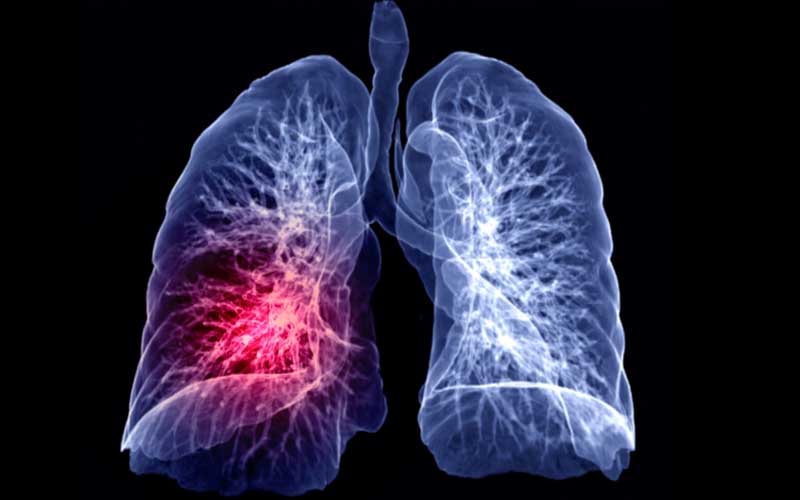

Lung cancer begins in the lungs and may spread to lymph nodes or other organs in the body, such as the brain. Cancer from other organs also may spread to the lungs. When cancer cells spread from one organ to another, they are called metastases.
Lung cancers usually are grouped into two main types called small cell and non-small cell. These types of lung cancer grow differently and are treated differently. Non-small cell lung cancer is more common than small cell lung cancer.
Different people have different symptoms for lung cancer. Some people have symptoms related to the lungs. Some people whose lung cancer has spread to other parts of the body (metastasized) have symptoms specific to that part of the body. Some people just have general symptoms of not feeling well. Most people with lung cancer don’t have symptoms until the cancer is advanced. Lung cancer symptoms may include
● Coughing that gets worse or doesn’t go away.● Chest pain.
● Shortness of breath.
● Wheezing.
● Coughing up blood.
● Feeling very tired all the time.
● Weight loss with no known cause.
Other changes that can sometimes occur with lung cancer may include repeated bouts of pneumonia and swollen or enlarged lymph nodes (glands) inside the chest in the area between the lungs.
Lung cancer is treated in several ways, depending on the type of lung cancer and how far it has spread. People with non-small cell lung cancer can be treated with surgery, chemotherapy, radiation therapy, targeted therapy, or a combination of these treatments. People with small cell lung cancer are usually treated with radiation therapy and chemotherapy.
● Surgery : An operation where doctors cut out cancer tissue.● Chemotherapy : Using special medicines to shrink or kill the cancer. The drugs can be pills you take or medicines given in your veins, or sometimes both.
● Radiation therapy : Using high-energy rays (similar to X-rays) to kill the cancer.
● Targeted therapy : Using drugs to block the growth and spread of cancer cells. The drugs can be pills you take or medicines given in your veins.
